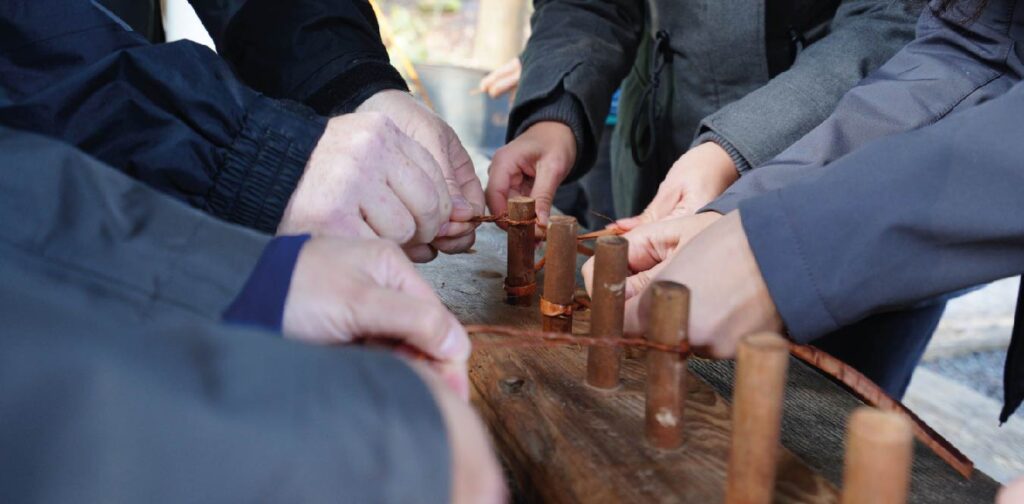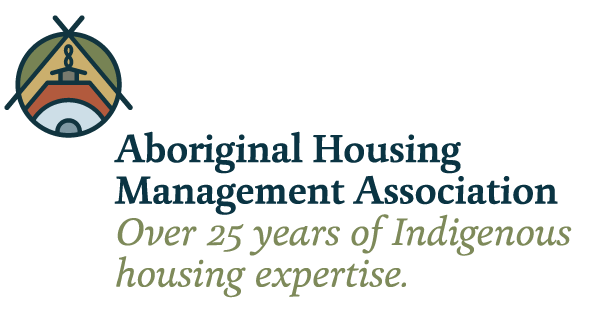
Our History
AHMA supports Indigenous Peoples: First Nations, Metis, Inuit, Status and Non-Status who live off-reserve in urban, rural, and northern areas of BC and require housing. Established in 1996, we are Canada’s first For Indigenous, By Indigenous housing authority.
The Creation of AHMA
1993 – 1996:
Federal government (CMHC) announces it will stop building new “urban Native” housing units and devolves social housing to the provinces. A collective of Indigenous housing societies forms in response to this, called the Urban Native Housing Societies of BC — this evolves into what is now AHMA.
2004 – 2006:
AHMA and the Province of BC officially sign an interim self- management agreement — the first of its kind in Canada. BC Housing transfers 754 units to AHMA. This marks the beginning of the 10-year Devolution Period.
2012:
AHMA and BC Housing sign the first ever Aboriginal Social Housing Management Agreement (ASHMA). All provincial Indigenous housing programs are transferred to AHMA and our members. AHMA hosts the World Indigenous Housing Conference.
2018 – 2019:
AHMA moves to a fully independent Board of Directors. Six Directors are voted in by members. The Nə́c̓aʔmat Leləm̓ Committee is also formed. A second and improved version of the Indigenous Social Housing Management Agreement (ISHMA) is signed. The BC Government & AHMA announce the historical Building BC: Indigenous Housing Fund (IHF). Making BC the first province to fund both on- and off-reserve housing.
AHMA celebrates its 25th anniversary!
2022:
AHMA releases BC’s first Urban, Rural and Northern Indigenous Housing Strategy — the culmination of more than a year of research and consultation. The result is an inclusive, For Indigenous, By Indigenous (FIBI) strategy rooted in belonging, cultural respect, and honouring Indigenous traditions. Our Strategy is broadly endorsed and celebrated as a national baseline.
2023:
AHMA co-founded NICHI resulting in $4B earmarked for URN Indigenous Housing, the IHF was doubled under AHMA’s guidance, AHMA is invited to present at National and International conferences.
The Origin Story of AHMA
It is vitally important that all levels of government understand AHMA’s deep-rooted connections to First Nations, Metis, Inuit and non-status Indigenous peoples across Canada. AHMA is distinctively different from First Nations, Metis, and Inuit governing bodies within British Columbia and at the same time, we are intricately connected. Urban Indigenous housing providers started operating in the 1970s in response to blatant and ongoing systemic racism and marginalization that was leaving many urban Indigenous Peoples unable to find safe, secure, and affordable housing. They formed as not-for-profit societies and applied to the Canadian Mortgage and Housing Corporation for the urban Indigenous affordable housing programs (called Urban Native Housing) rolling out in the mid-80s. First Nations & Metis families that could not find housing in BC were originally funded under federal operating agreements. Those operating agreements mandated that their boards of directors must not be under the leadership or direction of any particular First Nation and instead be independent housing societies with their own bylaws and policies.
When the federal government stopped managing affordable housing in the early 90s, AHMA was formed as an administrative oversight body to fill the service gap between:
- 30% of the Indigenous population who live on reserve (supported by their Nations and FNHIC), and
- 70% of the Indigenous population living in urban, rural and northern parts of BC without connection to their traditional home Nation (supported by AHMA).
AHMA is the ONLY organization dedicated to meeting the housing needs of non-status and colonially dispossessed / displaced Indigenous Peoples who are not living on reserve in BC. AHMA works with First Nations leadership across BC to support housing solutions for all Indigenous Peoples by lending our expertise. We additionally partner with many influential local and national organizations, including as annual co-presenters of Housing Central.
AHMA members manage 95% of all Indigenous housing units located off-reserve in BC. AHMA provides operational support, funds administration, and asset management strategies for our members. AHMA members provide:
- Affordable housing
- Transition homes
- Shelters
- Supportive housing
- Assisted living facilities for Elders
- Mental health programs
- Parenting skills
- Cultural programs, decolonized approaches, and trauma-informed solutions
- Complex care (housing with healthcare)
- Addictions and recovery support
- And more…

